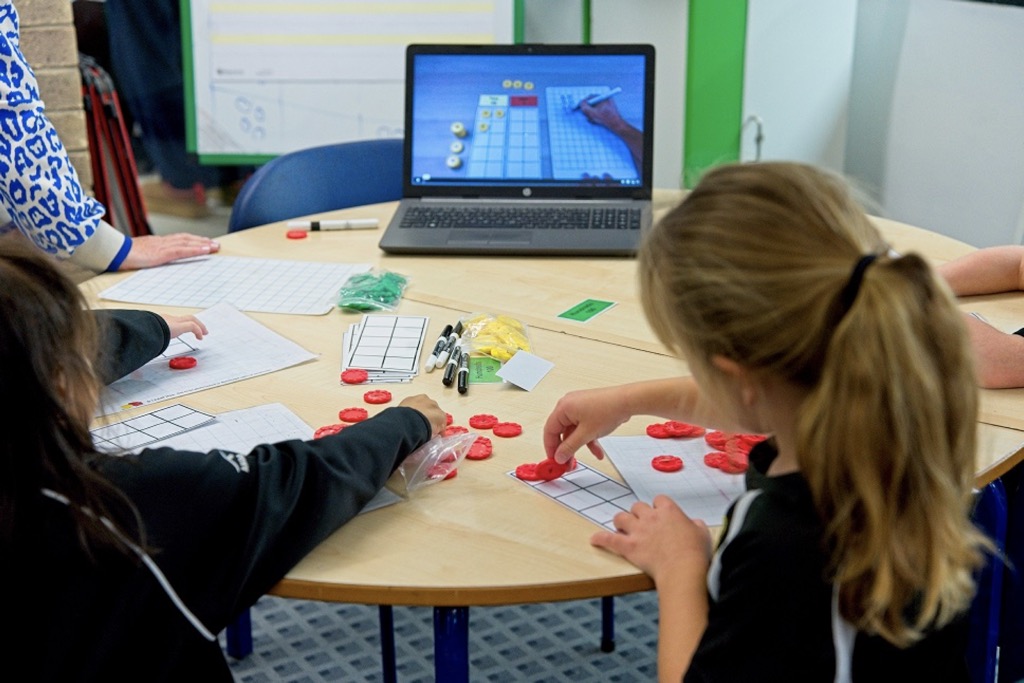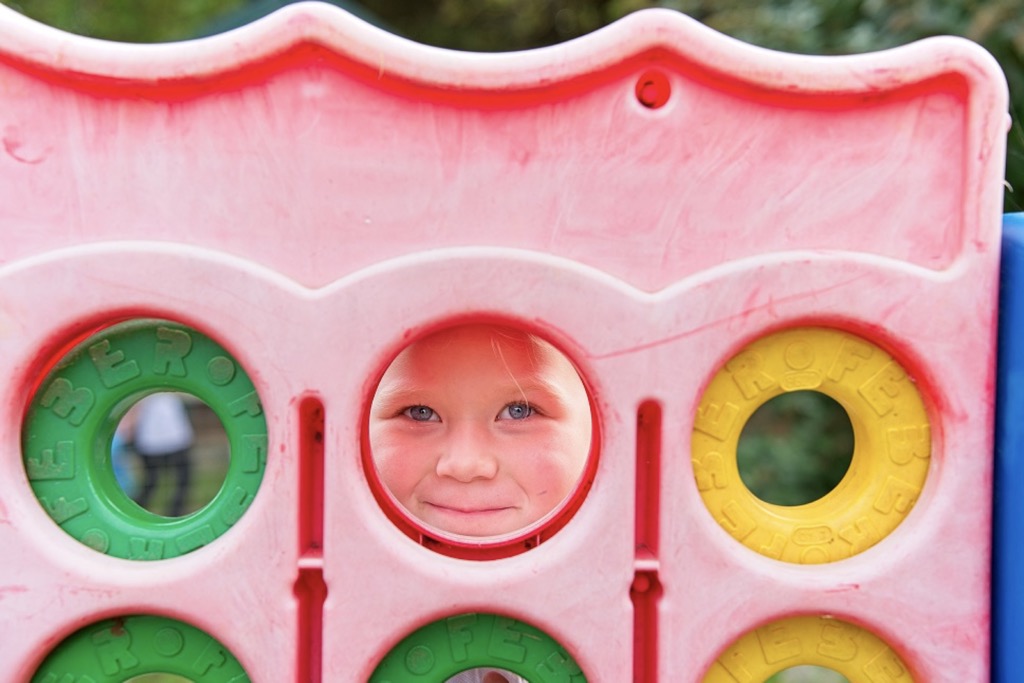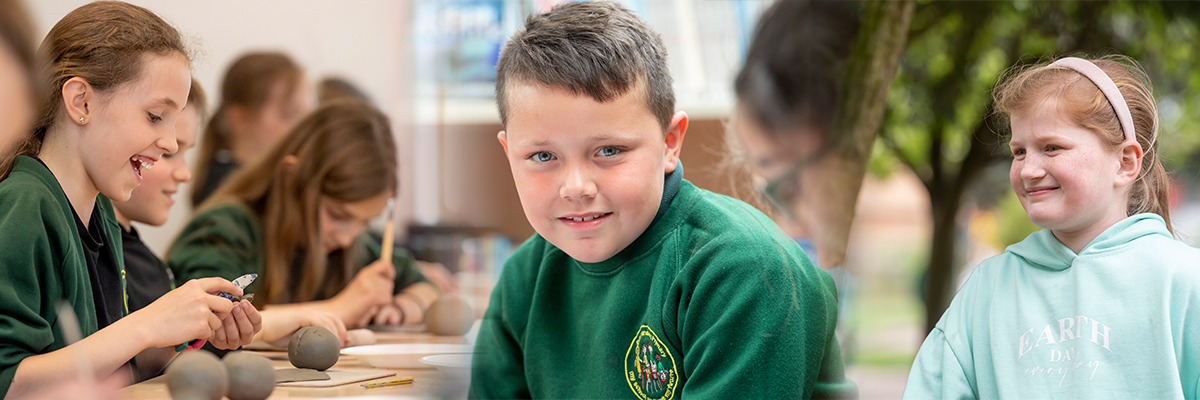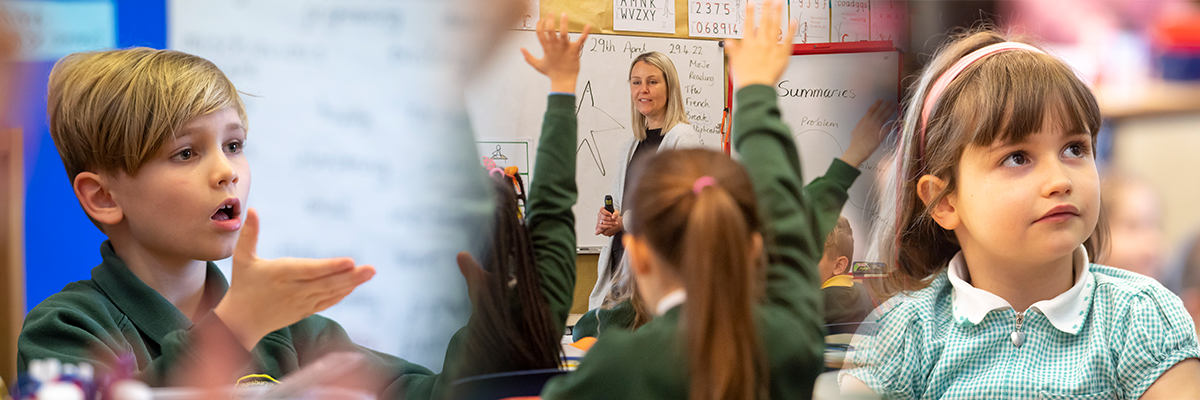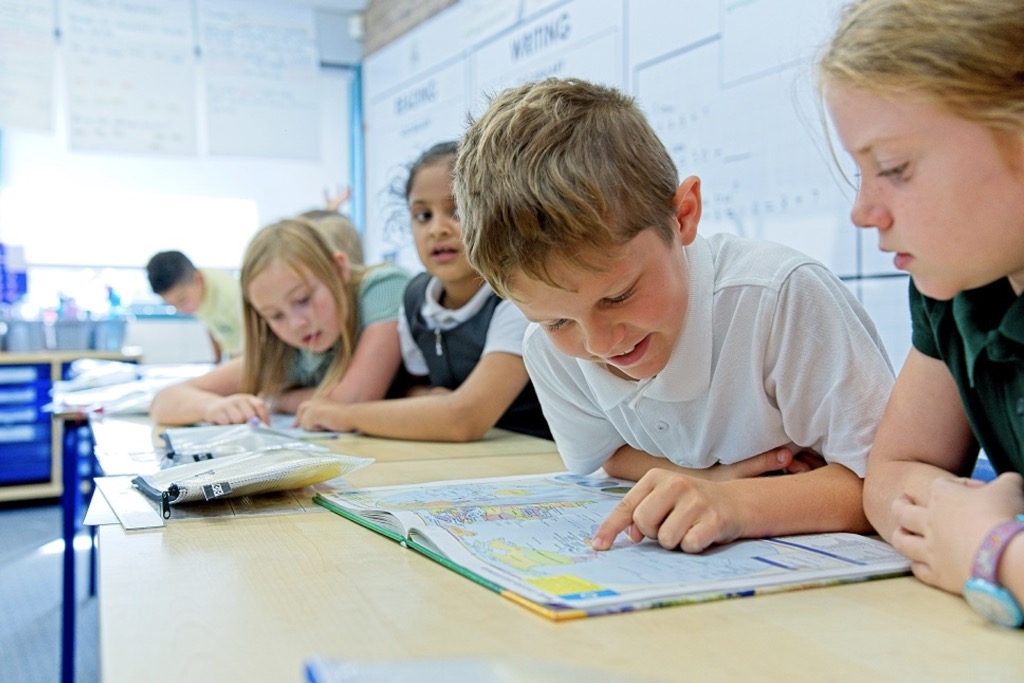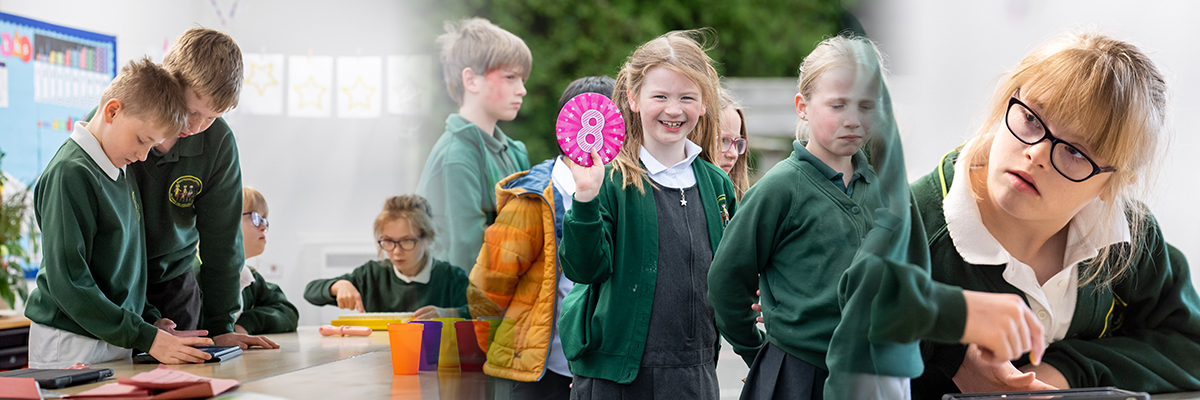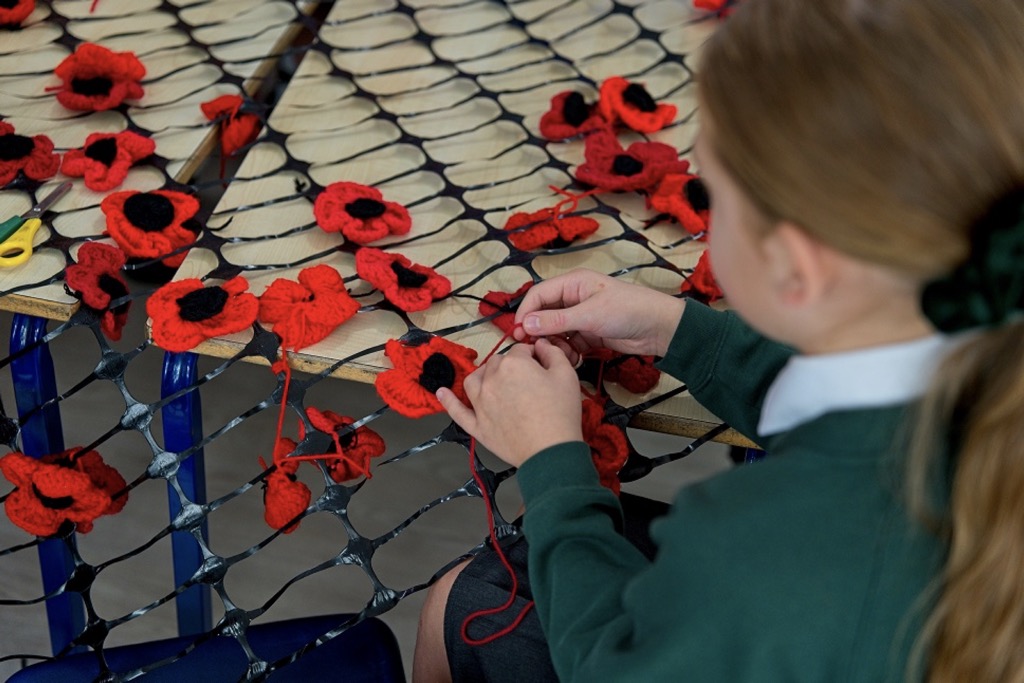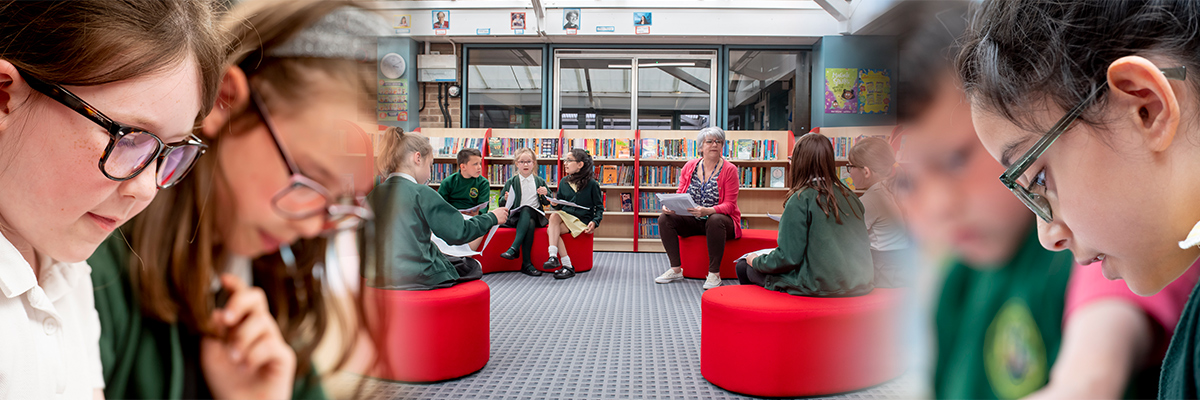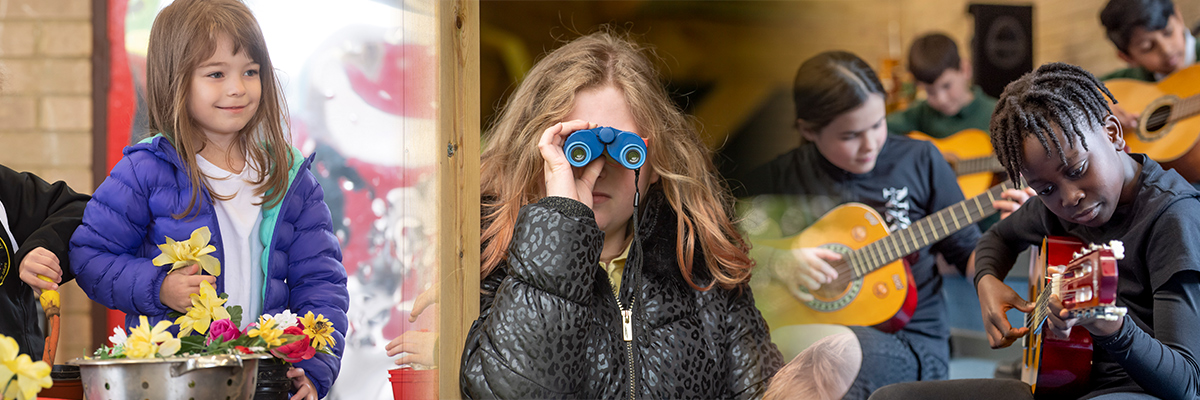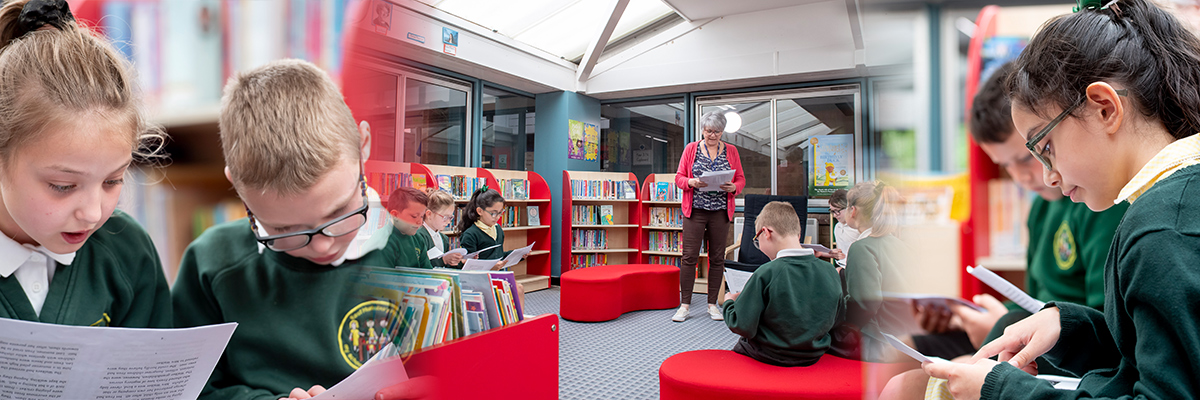Our Curriculum : Modern Foreign Languages French
‘Learning a foreign language is a liberation from insularity and provides an opening to other cultures. A high-quality languages education should foster pupils’ curiosity and deepen their understanding of the world.’ The National Curriculum 2014 – Key Stage 2 Purpose of study for Languages
Language is an essential means of everyday communication and interaction. Learning another language raises awareness of the multi-lingual and multi-cultural world in which we live and introduces an international dimension to pupils’ learning, giving them an insight into their own culture and those of others
At East Hunsbury Primary School, it is our intention to provide a language curriculum that is aspirational, enabling and inclusive, as well as being a valuable educational, social and cultural experience for all. We intend for our pupils to develop communication and literacy skills that will provide the foundation for their future language learning.
We intend children to develop linguistic competence, extend their knowledge of how language works and explore differences and similarities between a foreign language and English.
The intention of our Modern Foreign Languages curriculum is to:
- Deliver the learning of the French language and its culture in enjoyable and interesting ways.
- Embed the essential skills of listening, reading, speaking and writing.
- Extend pupils’ cultural knowledge so that they develop an awareness of the similarities and differences between cultures.
- Foster an interest in and a thirst for learning other languages.
- Lay the foundations for future language learning.
- Broaden their frame of reference and knowledge within the wider curriculum by providing cross-curricular opportunities such as reviewing time and number.
Our Modern Foreign Languages curriculum is delivered using the Language Angels scheme of work, which is taught in weekly lessons across Key Stage 2. The scheme is structured to progressively develop knowledge and skills in French across the years and is designed to build on their prior knowledge. We chose this scheme as the underlying principles matched our curriculum philosophy and ethos.
The Language Angels scheme of work ensures we offer a relevant, broad, vibrant and ambitious foreign languages curriculum that will inspire and excite our pupils through a wide variety of topics and themes. Language Angels will also ensure that the foreign language knowledge of our pupils progresses within each academic year and is sequentially built upon throughout the primary phase.
Our curriculum is implemented in such a way that ensures the pupils study the three progressive learning objectives: oracy, literacy and intercultural understanding, and two ‘cross-cutting’ strands: knowledge about language and language learning strategies.
Throughout the Modern Languages Curriculum within our school, pupils work towards the learning objectives outlined in the National Curriculum Key Stage 2 Framework for Languages and engage in a variety of learning experiences (music and song, fiction and non-fiction stories, games and practical activities) which support the following five key areas of language learning:
- Listening
- Speaking
- Writing
- Reading
- Grammatical understanding.
Our curriculum ensures that all pupils develop solid foundations in these key language learning skills and thus they are prepared for the next stage of their language learning journey. They will develop their ability to understand what they hear and read, which will enable them to express themselves in speech and writing, and their knowledge of how language works will be extended. Pupils will explore the similarities and differences between the foreign language they are learning and English. Our curriculum will help to strengthen pupils’ sense of identity through learning about culture in other countries and comparing it with their own.
Lessons are mainly practical in focus within the lower Key Stage 2 curriculum and build progressively on previous knowledge. Within upper Key Stage 2, there is a more formal approach which ensures our pupils are ready for their language learning in the next stage of their educational journey.
We measure the impact of our curriculum through the following methods:
- Observing pupils speaking and listening in French
- Pupil engagement in lessons
- Marking of written work
- Termly assessments
- Ongoing ‘assessment through learning’ throughout lessons
- Interviewing pupils about their learning (pupil voice)
- End of year assessment on our internal data systems to monitor pupil progress outcomes
The impact of teaching on the pupils’ learning will be continually monitored by the subject lead and will ensure that there is progress in the knowledge and skills being taught and that this knowledge is retained by pupils. Learning will be continually revisited to check that pupils can apply the skills taught to a variety of settings, showing independence with their learning.
The impact of our curriculum will also be measured through key questioning skills within lessons and summative assessments aimed at targeting next steps in learning.
French is introduced at the beginning of Key Stage 2 and is taught in weekly half-hour sessions. The curriculum follows a progressive structure, ensuring that key grammatical concepts, such as masculine and feminine noun forms, are introduced early and revisited across different topics to reinforce learning.
To support progression, core themes like numbers and time are revisited yearly, allowing students to build upon their prior knowledge and deepen their understanding. Additionally, diagonal links are made across the curriculum, with topics such as numbers and time connecting to mathematics, while vocabulary and sentence structure support literacy skills. Cultural elements of French-speaking countries are also explored, linking to geography and global citizenship themes.
This approach ensures a well-rounded language learning experience, reinforcing skills through meaningful cross-curricular connections while allowing for steady progression throughout Key Stage 2.
|
Year 3 |
Year 4 |
Year 5 |
Year 6 |
|
|
Autumn Term 1 |
Phonetics 1 (X) & I Am Learning French (E) |
Phonetics 2 (X) & Presenting Myself (I) |
Phonetics 3 (X) & The Date (I) |
Phonetics 4 (X) & At School (P) |
|
Autumn Term 2 |
Animals (E) |
My Family (I) |
Do You Have a Pet? (I) |
Planets (P) |
|
Spring Term 1 |
Instruments (E) |
At the Tea Room (Fr) (I) |
My Home (I) |
At the Weekend (P) |
|
Spring Term 2 |
I Am Able …(Fr) (E) |
In the Classroom (I) |
The Olympics (I) |
Healthy Lifestyle (P) |
|
Summer Term 1 |
Ice-Creams (E) |
What is the Weather? (I) |
Clothes (I) |
Vikings (P) |
|
Summer Term 2 |
Fruits (E) or Vegetables (E) |
Goldilocks (I) |
Habitats (I) |
Me in the World (P) |
Although, French is not formally introduced until KS2, the Early Learning Goals from the EYFS framework still provide a strong foundation for language learning. Key ELGs, particularly those related to Communication and Language, Literacy, and Understanding the World, create links to the Key Stage 2 language curriculum and to other subjects. Listening and attention skills developed in EYFS help children focus on spoken language, distinguish sounds and follow instructions, which supports French listening skills. Similarly, early speaking skills build confidence in oral communication, aiding pronunciation and conversational abilities in a new language. Vocabulary development and word recognition also establish a strong grammatical foundation, making it easier for students to understand concepts such as gendered nouns in French.
Diagonal links across the curriculum further enhance language learning. Mathematical development in EYFS, particularly in number sequences and time, supports Key Stage 2 French topics like counting and telling the time while reinforcing maths skills. Understanding the World encourages cultural awareness, preparing students to engage with French-speaking cultures in later years. Additionally, early literacy experiences, such as phonics and storytelling, help students decode words and develop confidence in speaking—essential skills for learning French. By building on these early language skills, students transition more smoothly into formal French learning in Key Stage 2, ensuring continuity and confidence in language acquisition.
Key Stage 1 focuses heavily on phonics, helping children to recognise sounds, blend words, and understand letter patterns. This skill is transferable to French, where pronunciation and phoneme recognition play a key role in speaking and listening. Early exposure to songs, rhymes, and storytelling in English helps develop listening and speaking skills. These interactive methods mirror how languages are taught in Key Stage 2, making children more receptive to new linguistic structures when they encounter French later.
Activities like learning new vocabulary, sequencing stories, and following simple instructions in Key Stage 1, supported by our Talk for Writing approach, develop memory and cognitive flexibility. These are essential skills when learning French, as they help children retain and recall new words and phrases. Further to this, children in Key Stage 1 are encouraged to take risks in their learning, make mistakes, and try again. This mindset is crucial for language learning, where trial and error play a huge part in mastering pronunciation and grammar. Exposure to different cultures, traditions, and languages in our Key Stage 1 curriculum, for example learning about India, Mary Seacole and Christopher Columbus, can spark curiosity about global communities. This prepares children to be open-minded and enthusiastic when they eventually begin learning French.
Whilst direct French instruction begins in Key Stage 2, the foundational skills developed in Key Stage 1 - such as phonics, confidence, memory, and cultural awareness - create a strong platform for future success in language learning.
At East Hunsbury Primary School, we encourage a deeper understanding of the curriculum by inviting visitors to share their skills and knowledge. When we have the opportunity, we invite guest speakers or attend online events to help enrich their understanding of the importance of languages and understanding other cultures. As a school, we believe it is important for our children to understand the diversity of our society and their place in society. This is supported by further opportunities outside of the school curriculum when they arise. Around February we discuss International Mother Language Day and we aim to celebrate World Day for Cultural Diversity for Dialogue and Development in May as recognised by the United Nations.
At East Hunsbury Primary School, we promote British values through language learning. British values, including those of democracy, the rule of law, individual liberty and mutual respect and tolerance of those with different faiths and beliefs are embedded within the language curriculum. Collaborative work in language lessons develops mutual respect for the differing opinions, beliefs and abilities of others. In addition, children learn to appreciate the value of similarities and differences and learn to show tolerance. A variety of experiences teaches them to appreciate that all people, and their views, are equally important. Where appropriate, the structures of governments in other countries can be discussed in relation to democracy. The five fundamental British values are interwoven into the language curriculum. Particularly as to how they relate to culture of the countries in which French are spoken and the similarities and differences to life in Britain.
Our languages curriculum provides a basis for teaching and learning about other cultures and this is incorporated into many areas of the curriculum. We ensure that learning across the curriculum includes the development of understanding of the culture of the countries where the focus language is spoken. This can be seen by listening to music from francophone countries and discussing important foods from their national cuisines.
We ensure that our Modern Foreign Languages curriculum offers opportunities to understand the Equality Act 2010, including preventing discrimination against those with the following protected characteristics:
- Age
- Disability
- Gender reassignment
- Marriage and civil partnership
- Pregnancy and maternity
- Race
- Religion or belief
- Sex (gender)
- Sexual orientation
Learning French at KS2 (Key Stage 2) can support the understanding and development of protected characteristics as defined by the Equality Act 2010 in several ways. By exploring language and culture, children gain a broader perspective on diversity, inclusion, and respect for others.
One key benefit is the promotion of respect and tolerance for different religions, beliefs, races, and ethnicities. Learning French introduces children to various cultures, traditions, and ways of life, fostering appreciation for diversity. By studying Francophone countries, for example in the ‘I Am Learning French’ unit, children can move beyond stereotypes and develop a more inclusive worldview.
French lessons also provide an opportunity to challenge gender stereotypes and explore issues related to sex, gender reassignment, and sexual orientation. The language’s use of masculine and feminine noun forms can lead to discussions on gender roles and equality.
By embedding discussions of equality and diversity into French lessons, children not only develop linguistic skills but also grow into more inclusive, globally aware individuals who understand and respect protected characteristics.
Our curriculum is inclusive by design and ensures equity for all. All learners are provided with the knowledge, skills and understanding of the world which allows them to grow, discover and succeed in life, with pupils being supported to succeed in Modern Foreign Languages through a variety of adaptive teaching approaches.
Studying a modern foreign language provides a brilliant opportunity for our children to deepen their understanding beyond the curriculum, particularly when exploring international themes or discussing international events.
Our education team include the following areas:
- Our world
- Enrichment and Critical Thinking
- Careers and Aspirations
- Health and Wellbeing
- Economics and Enterprise
French lessons provide the children with further understanding of ‘Our World’ and help pupils to understand other cultures and the UK is part of the larger continent of Europe. The teaching of languages can also promote a range of Careers and Aspirations through the sharing of experiences during lessons for example, international job opportunities. Some of our topics also cover food related information which provides an opportunity to discuss healthy eating habits.

